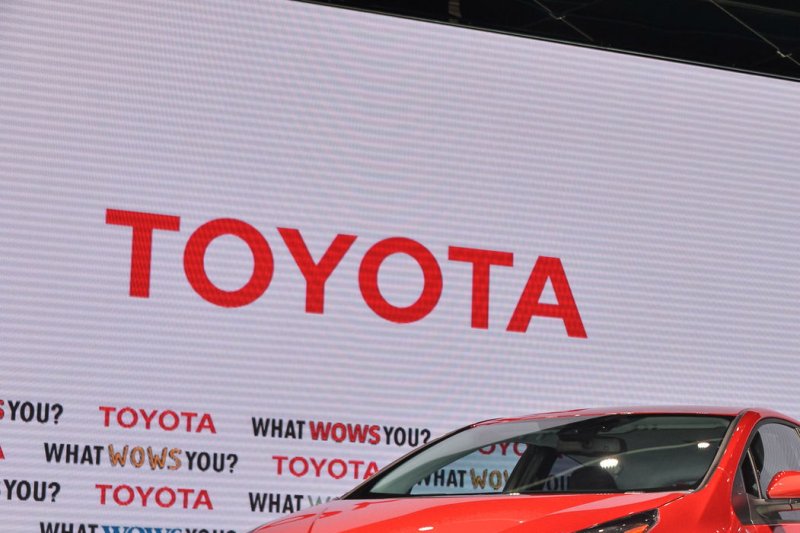Toyota to co-chair a 13-member council aimed at advancing hydrogen as an alternative fuel and energy resource. Photo by Keizo Mori/UPI |
License Photo
Automakers joined forces with some of the biggest oil companies in the world from Davos to put hydrogen forward as the next clean energy option.
From the sidelines for the World Energy Forum in Davos, Switzerland, companies from Toyota to Royal Dutch Shell formed a hydrogen council meant to steer the broader industry and policymakers toward hydrogen as a clean energy or fuel choice.
"The Hydrogen Council brings together some of the world's leading industrial, automotive and energy companies with a clear ambition to explain why hydrogen emerges among the key solutions for the energy transition, in the mobility as well as in the power, industrial and residential sectors," Benoit Potier, the CEO of French industrial gas supplier Air Liquide, said in a statement.
Air Liquide joins automaker Toyota in chairing a council of 13 companies with Asian and European roots. No U.S. companies are represented in the council. Toyota's Mirai touts a fuel-equivalent economy of 312 miles per tank with zero emissions.
Fuel cell vehicles are limited in availability and depend in part on access to refueling stations for hydrogen.
"We need governments to back hydrogen with actions of their own – for example through large-scale infrastructure investment schemes," Potier said.
The council collectively aims to invest nearly $11 billion during the next five years in hydrogen-related energy products.
Outside of the 13-member group, the United States has committed at least $3 million to advance fuel-cell research with the aim of increasing market competition. Austria, meanwhile, already has infrastructure in place to support hydrogen-powered vehicles and energy company OMV said it's a partner in an initiative in Germany, which envisions 400 hydrogen filling stations by 2023.
The transportation sector accounts for the bulk of global greenhouse gas emissions annually.















